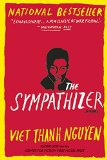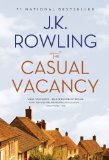Summary | Excerpt | Reading Guide | Reviews | Beyond the book | Read-Alikes | Genres & Themes | Author Bio

Caryl Phillips reimagines Emily Bronte's melodramatic "Wuthering Heights", weaving the past and the present into a modern story of exile and difference.
Caryl Phillips's The Lost Child is a sweeping story of orphans and outcasts, haunted by the past and fighting to liberate themselves from it. At its center is Monica Johnson - cut off from her parents after falling in love with a foreigner - and her bitter struggle to raise her sons in the shadow of the wild moors of the north of England. Phillips intertwines her modern narrative with the childhood of one of literature's most enigmatic lost boys, as he deftly conjures young Heathcliff, the anti-hero of Wuthering Heights, and his ragged existence before Mr. Earnshaw brought him home to his family.
Written in the tradition of Jean Rhys's Wide Sargasso Sea and J. M. Coetzee's Foe, The Lost Child is a multifaceted, deeply original response to Emily Bronte's masterpiece, Wuthering Heights. A critically acclaimed and sublimely talented storyteller, Caryl Phillips is "in a league with Toni Morrison and V. S. Naipaul" (Booklist) and "his novels have a way of growing on you, staying with you long after you've closed the book." (The New York Times Book Review) A true literary feat, The Lost Child recovers the mysteries of the past to illuminate the predicaments of the present, getting at the heart of alienation, exile, and family by transforming a classic into a profound story that is singularly its own.
I can think of no better pleasure than to read The Lost Child and to reread Wuthering Heights right after. Entering into the nitty gritty of the thematic connections Phillips hopes to make – about loss and identity, gender and race, creativity and adversity – is a satisfying, although not undemanding venture. The ghostly presence of Emily Brontë makes The Lost Child more than the sum of its parts, and the resonances Phillips explores between the literary past and the recent historical past echo in the mind long after the novel is finished...continued
Full Review
 (874 words)
(874 words)
(Reviewed by Jennifer G Wilder).
In The Lost Child, Caryl Phillips takes up elements from the life of Emily Brontë and her masterpiece novel of 1847, Wuthering Heights. Brontë's life and works are often read in tandem. Perhaps because her life was so brief and her oeuvre so small, both the biography and the work are needed to get a grip on what she was thinking. That an unassuming, free-spirited woman of the early nineteenth century could produce one of the most haunting novels in the English literary canon is a fact that astonished contemporary readers and continues to enthrall today.
 Emily Brontë was born in 1818 to Patrick Brontë (né Brunty, of Ireland) and his wife, Maria. She was the fifth of six children, and at the age of two, the ...
Emily Brontë was born in 1818 to Patrick Brontë (né Brunty, of Ireland) and his wife, Maria. She was the fifth of six children, and at the age of two, the ...

If you liked The Lost Child, try these:

by Viet Thanh Nguyen
Published 2016
Winner of 2016 Pulitzer Prize for Fiction. A startling debut novel featuring one of the most remarkable narrators of recent fiction: a conflicted subversive and idealist working as a double agent in the aftermath of the Vietnam War

by J.K. (Joanne) Rowling
Published 2013
Blackly comic, thought-provoking and constantly surprising, The Casual Vacancy is J.K. Rowling's first novel for adults.
All my major works have been written in prison...
Click Here to find out who said this, as well as discovering other famous literary quotes!